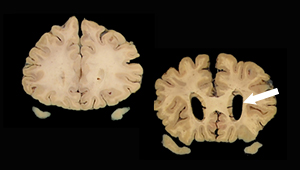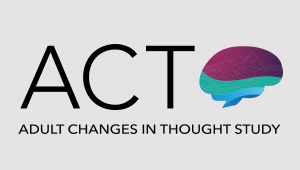Chloe Krakauer, PhD, MS
Biography
Dr. Krakauer is a collaborative biostatistician whose research interests include decision theory, Bayesian statistics, missing data, selection bias, and quantitative communication. Dr. Krakauer received her PhD in biostatistics from the University of Washington in 2021. Her dissertation spanned 2 statistical fields of study: missing data and decision theory.
In her first project, Dr. Krakauer and Dr. Mauricio Sadinle developed a method to estimate the association between potential health determinants and a health outcome that is subject to missing data, or “missingness.” Under these circumstances, investigators must generally make strong, unverifiable assumptions about the reason for missingness to conduct analyses. By using data on the outcome from sources outside the current study, the novel methodology negates the need to make such strong assumptions.
Her second and third projects, with Dr. Kenneth Rice, used decision theory — or decisions based on explicit relative losses for “incorrect” decisions. Drs. Krakauer and Rice applied decision theory to better interpret the evidential worth of significance tests. This research may be used to justify lowering the typical significance threshold of 0.05 and discourage overinterpretation of p-values that just surpass the current typical significance threshold. They further applied decision theory to reducing the Winner’s Curse — bias incurred for limiting reported research results to those that are statistically significant, as is often the case.
At KPWHRI, Dr. Krakauer is currently a statistician with the Adult Changes in Thought (ACT) study, which aims to find ways to prevent or delay dementia, and the STRIPE study, a pragmatic clinical trial on methods to manage pain. She has previously contributed to studies and grant proposals on smoking cessation and dental health with Oral Health for Life (OH4L), quality of health care at small practices with Healthy Hearts Northwest (H2N), meningitis vaccination strategies, pharmaceutical pricing, and cancer screening procedures.
Research Interests and Experience
-
Aging & Geriatrics
-
Behavior Change
Dental care
-
Biostatistics
Missing data, Bayesian statistics, decision theory, selection bias
-
Chronic Illness Management
-
-
Health Services & Economics
Quality of care at small practices
Recent Publications
Lee CS, Su YR, Walker RL, Krakauer C, Blazes M, Johnson EA, Cronkite D, Bowers W, Hess C, Arterburn D, Agrón E, Chew EY, Crane PK A Novel AMD Severity Scoring System Leveraging the AREDS Studies and Routine Clinical Electronic Medical Records 2025 Oct;132(10):1076-1087. doi: 10.1016/j.ophtha.2025.04.026. Epub 2025-04-29. PubMed
Harrington LB, Tom SE, Krakauer C, Wartko PD, Chau K, Muiruri R, Micks E, McEvoy LK, LaCroix AZ, Miller EC Adverse Pregnancy Outcomes and Cognitive Change in Older Women 2025 Sep 29 doi: 10.1177/15409996251383009. Epub 2025-09-29. PubMed
Li KH, Krakauer C, Nelson JC, Crane PK, Andre JB, Curl PK, Yuh E, Mossa-Basha M, Ralston JD, Mac Donald CL, Gray SL Cumulative anticholinergic exposure and white matter hyperintensity burden in community-dwelling older adults 2025 Apr;73(4):1115-1124. doi: 10.1111/jgs.19325. Epub 2024-12-19. PubMed
McClure JB, Heffner JL, Krakauer C, Mun S, Catz SL A Novel mHealth App for Smokers Living With HIV Who Are Ambivalent About Quitting Smoking: Formative Research and Randomized Feasibility Study 2024 Jul 8;8:e58063. doi: 10.2196/58063. Epub 2024-07-08. PubMed
Mossa-Basha M, Andre JB, Yuh E, Hunt D, LaPiana N, Howlett B, Krakauer C, Crane P, Nelson J, DeZelar M, Meyers K, Larson E, Ralston J, Mac Donald CL Comparison of brain imaging and physical health between research and clinical neuroimaging cohorts of ageing 2024 Feb 28;97(1155):614-621. doi: 10.1093/bjr/tqae004. PubMed
Lee CS, Ferguson AN, Gibbons LE, Walker R, Su YR, Krakauer C, Brush M, Kam J, Larson EB, Arterburn DE, Crane PK, Eye ACT Study Group: Eye Adult Changes in Thought (Eye ACT) Study: Design and Report on the Inaugural Cohort 2024 Jan;100(1):309-320. doi: 10.3233/JAD-240203. PubMed
Wartko PD, Krakauer C, Turner JA, Cook AJ, Boudreau DM, Sullivan MD STRategies to Improve Pain and Enjoy life (STRIPE): results of a pragmatic randomized trial of pain coping skills training and opioid medication taper guidance for patients on long-term opioid therapy 2023 Dec;164(12):2852-2864. doi: 10.1097/j.pain.0000000000002982. Epub 2023-08-25. PubMed
Research

Digital tool could help people change smoking habits
A mobile application designed to engage smokers who are ambivalent about quitting shows promising results.
Research

Study evaluates biomarker criteria for Alzheimer’s risk
One-third of people classified as ‘highest risk’ may not develop Alzheimer’s disease, study suggests
Learn About the ACT Study

Understanding brain aging
For over 30 years, the Adult Changes in Thought (ACT) Study has been advancing our understanding of cognition, aging, and better ways to delay and prevent Alzheimer’s disease and related dementias.



